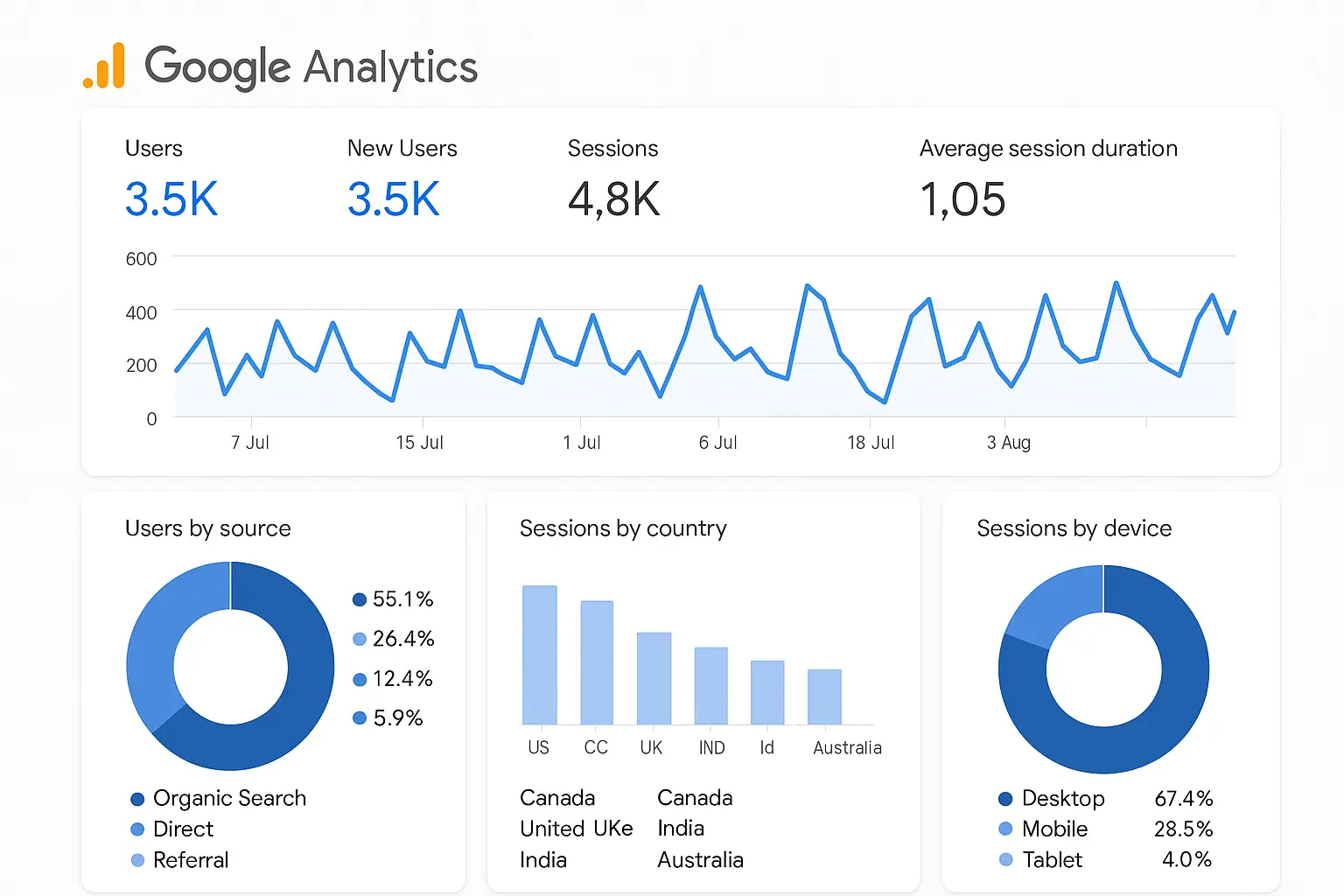In today’s competitive e-commerce landscape, making data-driven decisions is crucial for boosting performance, increasing conversion rates, and enhancing customer satisfaction. Google Analytics is an indispensable tool that helps e-commerce businesses gain deep insights into user behavior and optimize website performance.
Why Analytics Matter for E-Commerce Success
E-commerce is about more than just selling products—it’s about delivering an exceptional experience to your customers. However, understanding what drives sales, where customers drop off, and how to improve the user journey requires more than guesswork. Enter Google Analytics, which helps businesses track and measure user behavior in real time. This data empowers you to make informed decisions that optimize your store’s performance.
Key Metrics to Track
Google Analytics provides essential insights that help you measure and optimize key performance indicators (KPIs) to grow your e-commerce business:
Conversion Rate
The conversion rate tracks the percentage of visitors who complete a desired action, like making a purchase. By monitoring this metric, you can identify what strategies work and which areas need improvement to increase conversions.
Cart Abandonment Rate
A common challenge for e-commerce businesses is cart abandonment. Google Analytics offers insights into where customers abandon their carts. By optimizing your checkout process or offering incentives, you can reduce abandonment and improve sales.
Revenue Tracking
Through Enhanced E-commerce tracking, Google Analytics enables you to monitor revenue, product performance, and customer interactions. This data helps you optimize your marketing strategies and boost revenue by understanding what works best.
Understanding User Behavior
Google Analytics offers powerful tools to analyze how visitors interact with your website, providing actionable insights for better user experience and increased engagement.
Behavior Flow
The Behavior Flow report visualizes how users move through your site. Identifying drop-off points helps you optimize the user journey, ensuring visitors stay engaged and complete their desired actions.
Audience Segmentation
With audience segmentation, Google Analytics allows you to break down your audience by demographics, location, or device type. This enables you to tailor your content and marketing strategies to specific segments, increasing relevance and boosting engagement.
Optimizing Marketing Campaigns
Google Analytics helps track the performance of various marketing campaigns, ensuring that your budget is well spent and your strategies are effective.
Campaign Tracking
By using UTM parameters, you can track the effectiveness of specific marketing campaigns. This helps you understand which channels, such as social media ads or email marketing, are driving the most conversions, allowing you to allocate resources more efficiently.
Attribution Models
Google Analytics provides different attribution models that help assess the effectiveness of various touchpoints along the customer journey. Understanding which channels are most impactful allows you to refine your marketing strategies and improve ROI.
Enhancing Site Performance
Site performance directly impacts user experience and conversions. Google Analytics helps monitor important performance factors like site speed and bounce rate.
Site Speed
A slow-loading website can lead to high bounce rates and lost sales. Google Analytics integrates with PageSpeed Insights, helping you identify issues that affect page load times. By improving speed, you can enhance user experience and increase retention.
Bounce Rate
A high bounce rate signals that visitors are leaving your site without interacting. Google Analytics helps pinpoint pages with high bounce rates so you can improve content, design, and functionality to keep visitors engaged.
Making Data-Driven Decisions
Google Analytics gives you the data to make informed, strategic decisions. By understanding customer behavior and website performance, you can identify areas for improvement, optimize marketing strategies, and ultimately, increase conversions.
Conclusion: Embrace Analytics for Growth
Google Analytics is more than a tracking tool—it’s a powerful resource for improving your e-commerce performance. By leveraging its insights, businesses can optimize the user journey, enhance marketing campaigns, and increase conversions.
For e-commerce businesses looking to stay competitive, adopting Google Analytics is key to sustained growth and success.
Call to Action: Ready to unlock the potential of your e-commerce business with Google Analytics? Contact us today for expert advice on how to harness data and boost your online store’s performance! Contact us now.







